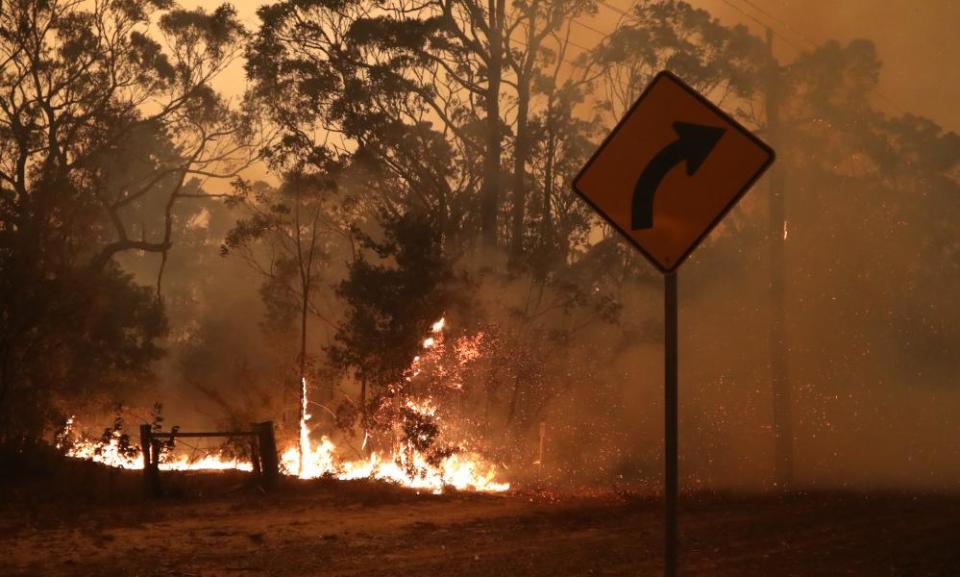Suncorp and IAG temporarily stop selling insurance in fire-affected areas of Victoria and NSW

Two of Australia’s biggest insurers, Suncorp and IAG, have temporarily stopped selling insurance policies across large swathes of Victoria and some areas in New South Wales affected by bushfires.
As of 1.30pm on Tuesday, Suncorp, which sells insurance under its own name and other brands including Aami and GIO, had 41 postcodes in Victoria and six in NSW under embargo, a spokeswoman said.
An IAG spokesman said that yesterday afternoon the company, which operates under brand names including NRMA Insurance and CGU, had 20 postcodes under embargo across the two states.
Embargoes are a common industry practice when insurers decide either not to sell new policies in disaster areas or to deny claims on new policies in such areas.
This is done to stop people from panic-buying insurance at the last moment before their homes are destroyed.
Related: Josh Frydenberg demands insurers provide unprecedented detail about bushfire property losses
Both Suncorp and IAG review their embargoes daily and Suncorp’s spokeswoman stressed that the number of embargoes could change quickly, telling Guardian Australia that 90 were lifted on Monday and another 18 on Tuesday.
“We are constantly reviewing areas that are embargoed and aim to lift restrictions once the imminent threat has passed,” she said.
IAG’s spokesman said the company would still sell insurance policies to embargoed areas.
“However, they won’t be able to make a claim for the specific risk that is included in the embargo until that embargo is lifted,” he said
Since 8 November, 13,750 bushfire insurance claims have been made, totalling $1.34m, Insurance Council of Australia statistics show.
The ratings agency Moody’s has pointed to Suncorp and IAG as the two insurers likely to take the biggest financial hits from the fires.
On Tuesday Moody’s issued a detailed report on Suncorp in which it said the company was taking heavy losses from the fires but “Suncorp’s reinsurance programs will mitigate the risk of further losses in the second half” of the year.
Another big insurer, QBE, declined to say how many areas it had under embargo.
“There are no bushfire-prone areas in Australia where QBE would not provide insurance and we welcome customers from these locales,” a spokeswoman said.
A Comminsure spokeswoman said the company had no areas under embargo.
“These are constantly monitored and only put in place as a measure of last resort where a bushfire is reaching an emergency warning level,” she said.
Westpac said it did not use embargoes but instead imposed a seven-day waiting period before new customers could claim on home, contents and landlord insurance policies.
“These waiting periods apply irrespective of whether there is a current natural disaster,” Sue Houghton, Westpac’s general manager of insurance, said.
As Guardian Australia reported on Friday, the treasurer, Josh Frydenberg, is closely monitoring bushfire insurance, demanding a list of information about individual property claims from the industry.

 Yahoo Finance
Yahoo Finance 